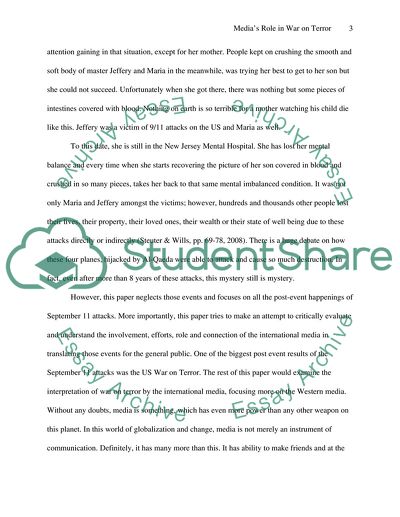Cite this document
(Medias Role in the War on Terror Case Study Example | Topics and Well Written Essays - 3000 words, n.d.)
Medias Role in the War on Terror Case Study Example | Topics and Well Written Essays - 3000 words. Retrieved from https://studentshare.org/media/1732064-drawing-on-specific-examples-assess-the-medias-role-in-launching-or-challenging-the-war-on-terror
Medias Role in the War on Terror Case Study Example | Topics and Well Written Essays - 3000 words. Retrieved from https://studentshare.org/media/1732064-drawing-on-specific-examples-assess-the-medias-role-in-launching-or-challenging-the-war-on-terror
(Medias Role in the War on Terror Case Study Example | Topics and Well Written Essays - 3000 Words)
Medias Role in the War on Terror Case Study Example | Topics and Well Written Essays - 3000 Words. https://studentshare.org/media/1732064-drawing-on-specific-examples-assess-the-medias-role-in-launching-or-challenging-the-war-on-terror.
Medias Role in the War on Terror Case Study Example | Topics and Well Written Essays - 3000 Words. https://studentshare.org/media/1732064-drawing-on-specific-examples-assess-the-medias-role-in-launching-or-challenging-the-war-on-terror.
“Medias Role in the War on Terror Case Study Example | Topics and Well Written Essays - 3000 Words”, n.d. https://studentshare.org/media/1732064-drawing-on-specific-examples-assess-the-medias-role-in-launching-or-challenging-the-war-on-terror.


